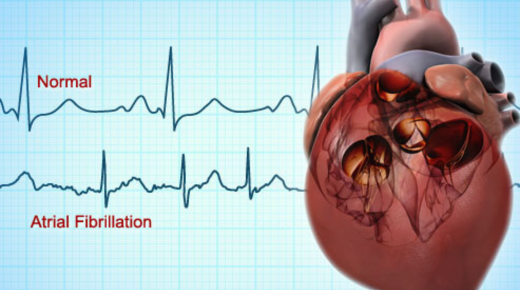1. Introduction to Atrial Fibrillation (AF)
Understanding the prognosis of atrial fibrillation (AF) after a stroke is crucial for patients and caregivers to navigate treatment and recovery effectively.
2. What is Atrial Fibrillation
Atrial fibrillation is a heart condition characterized by irregular and rapid heartbeats, increasing the risk of blood clots, stroke, and other complications.
3. Risk of Stroke in AF
AF significantly increases the risk of stroke due to blood pooling in the atria, leading to the formation of blood clots that can travel to the brain and cause a stroke.
4. Prognosis After AF-Related Stroke
The prognosis after an AF-related stroke depends on various factors, including the severity of the stroke, underlying health conditions, and promptness of treatment.
5. Severity of Stroke
The severity of the stroke, as determined by factors such as the size and location of the affected area in the brain, influences the prognosis and long-term outcomes.
6. Functional Impairment
Functional impairment resulting from an AF-related stroke, such as paralysis, speech difficulties, or cognitive deficits, can impact the prognosis and quality of life.
7. Time to Treatment
Prompt initiation of treatment, including thrombolytic therapy or mechanical clot retrieval, improves the prognosis and reduces the risk of disability and mortality.
8. Rehabilitation Potential
The potential for rehabilitation and recovery after an AF-related stroke depends on individual factors such as age, overall health, and access to rehabilitation services.
9. Complications and Comorbidities
The presence of complications and comorbidities, such as hypertension, diabetes, or heart failure, can worsen the prognosis and increase the risk of recurrent strokes.
10. Recurrence of Stroke
AF-related strokes have a higher risk of recurrence compared to strokes from other causes, highlighting the importance of ongoing management and stroke prevention strategies.
11. Medication Adherence
Adherence to medications, such as anticoagulants to prevent blood clots and antiplatelet agents, is crucial for reducing the risk of recurrent strokes and improving prognosis.
12. Lifestyle Modifications
Lifestyle modifications, including a healthy diet, regular exercise, smoking cessation, and alcohol moderation, play a significant role in improving prognosis and overall health.
13. Monitoring and Follow-Up Care
Regular monitoring and follow-up care with healthcare providers are essential for managing AF, optimizing treatment, and addressing any changes in health status that may affect prognosis.
14. Cardiac Monitoring
Continuous cardiac monitoring, such as ambulatory electrocardiography (Holter monitoring) or implantable devices, helps identify AF episodes and guide treatment decisions.
15. Stroke Prevention Strategies
Implementing stroke prevention strategies, such as anticoagulant therapy and lifestyle modifications, is crucial for reducing the risk of recurrent strokes and improving prognosis.
16. Support Systems
Accessing support systems, including family, caregivers, support groups, and community resources, provides emotional support and practical assistance in coping with AF-related stroke prognosis.
17. Mental Health Considerations
Addressing mental health concerns, such as depression, anxiety, or post-stroke cognitive impairment, is essential for optimizing recovery and overall prognosis.
18. Education and Empowerment
Education about AF, stroke risk factors, warning signs, and self-management strategies empowers patients and caregivers to actively participate in treatment decisions and improve prognosis.
19. Palliative Care and End-of-Life Planning
In cases of poor prognosis or advanced illness, palliative care services and end-of-life planning support patients and families in making informed decisions and ensuring comfort and dignity.
20. Research and Advances
Ongoing research and advances in AF management, stroke prevention, and rehabilitation techniques continue to improve prognosis and outcomes for patients with AF-related strokes.
21. Multidisciplinary Approach
A multidisciplinary approach involving cardiologists, neurologists, rehabilitation specialists, and other healthcare professionals is essential for comprehensive management and improving prognosis.
22. Patient Advocacy and Engagement
Patient advocacy efforts promote awareness, research funding, and policy changes to improve stroke prevention, treatment access, and overall prognosis for individuals with AF.
23. Caregiver Support
Caregiver support programs offer resources, education, and respite care to caregivers, reducing burden and enhancing care quality for patients with AF-related stroke prognosis.
24. Holistic Approach to Care
A holistic approach to care, addressing physical, emotional, and psychosocial needs, optimizes prognosis and enhances the overall well-being of patients and caregivers.
25. Conclusion: Optimizing Prognosis and Quality of Life
In conclusion, understanding the prognosis of atrial fibrillation-related stroke and implementing comprehensive management strategies are essential for optimizing prognosis, enhancing recovery, and improving the quality of life for individuals affected by AF.




